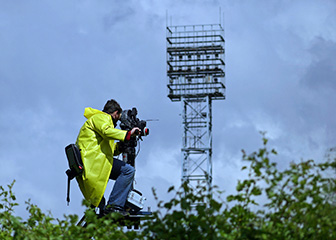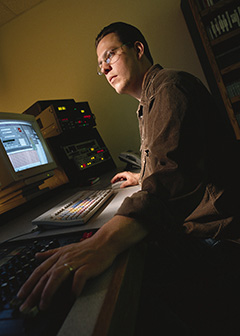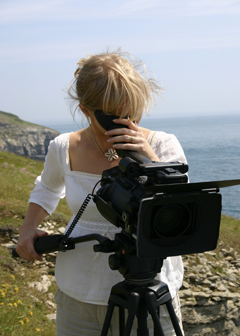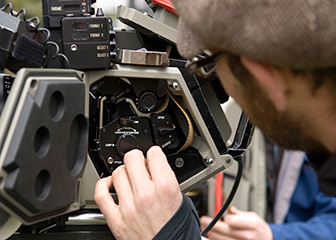Summary

| Quick Facts: Film and Video Editors and Camera Operators | |
|---|---|
|
$45,490 per year
$21.87 per hour |
|
| Bachelor’s degree | |
| See How to Become One | |
| See How to Become One | |
| 58,300 | |
| 4% (Slower than average) | |
| 2,200 | |
What Film and Video Editors and Camera Operators Do
Film and video editors and camera operators record images that entertain or inform an audience. Camera operators capture a wide range of material for TV shows, motion pictures, music videos, documentaries, or news and sporting events. Editors construct the final productions from the many different images camera operators capture. They collaborate with producers and directors to create the final production.
Work Environment
Most camera operators work in the motion picture industry or television broadcasting. Editors are employed largely by the motion picture industry, although some work in broadcasting.
How to Become a Film and Video Editor or Camera Operator
Camera operators typically need a bachelor’s degree and some on-the-job training. Most film editors have a bachelor’s degree and several years of experience as an assistant to a film editor.
Pay
The median annual wage of camera operators was $40,390 in May 2010. The median annual wage of film and video editors was $50,930 in May 2010.
Job Outlook
Employment of film and video editors and camera operators is projected to grow 4 percent from 2010 to 2020, slower than the average for all occupations. These occupations should have intense competition for jobs, and those with more experience at a TV station or on a film set will likely have the best job prospects.
Similar Occupations
Compare the job duties, education, job growth, and pay of film and video editors and camera operators with similar occupations.
O*NET
O*NET provides comprehensive information on key characteristics of workers and occupations.
Contacts for More Information
Learn more about film and video editors and camera operators by contacting these additional resources.











